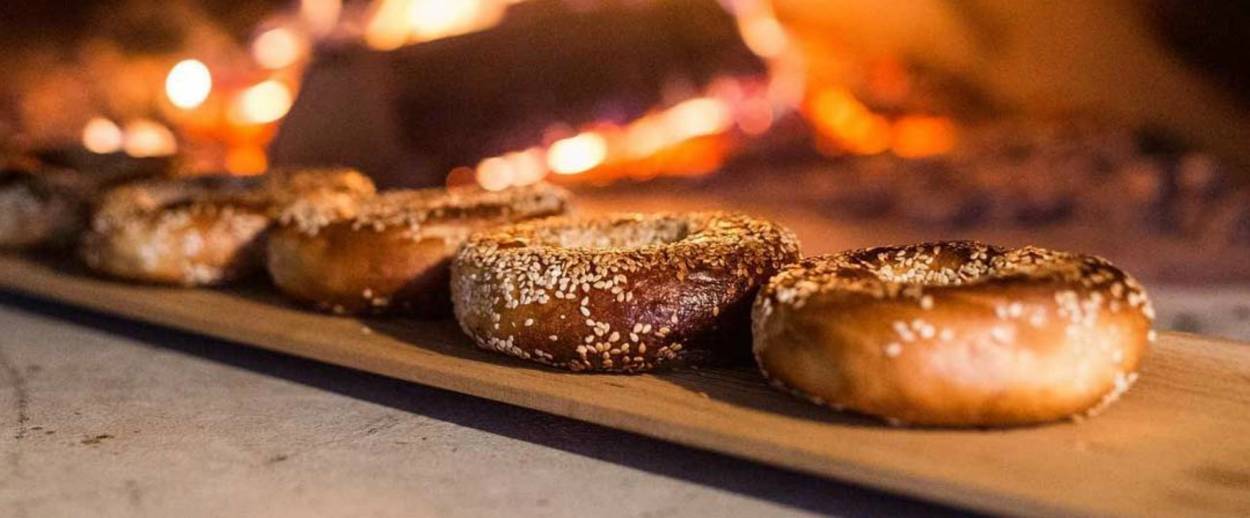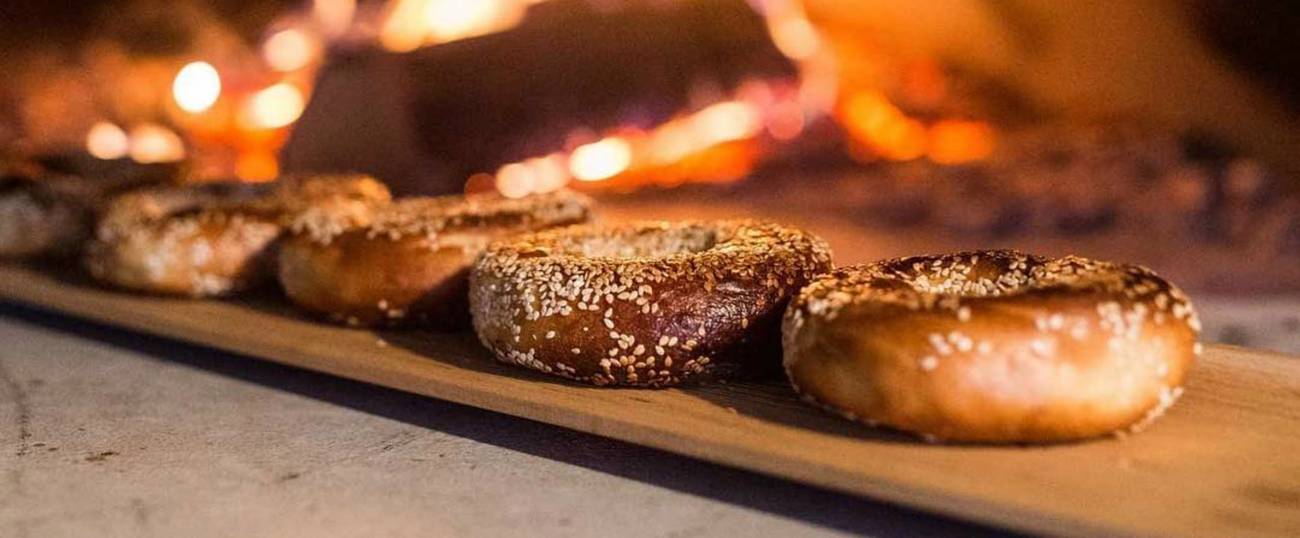An End to the Bagel Wars?
Bringing together New York and Montreal, Black Seed sets out to make the culinary staple interesting again




About the minor things in life—politics, say, or religion—I try to be reasonable and accommodating. But when it comes to life’s profundities, I stand determined and unmoved: The designated hitter rule is an affront to God and man, beaches are irritating hellscapes that are nowhere near as relaxing as pools, and Montreal bagels are an abomination.
I may have to change my mind about that last one: In what can only be attributed to divine providence, the enterprising bagel chain Black Seed is opening a fourth location today, down the block from Tablet’s offices in Manhattan. Launched four years ago by Matt Kliegman, the proprietor of several trendy New York restaurants, and Noah Bernamoff, who brought the smoked meats of his native Montreal to Brooklyn with his Mile End deli, Black Seed attempts to bridge the gap between two warring schools of bagelry, a doughy duel that has divided fans for decades. Remarkably, it succeeds: Their bagels are smallish, dense, and boiled in water mixed with honey, like they do in Montreal; but that water is NYC’s on-tap elixir, the bagel is hand rolled and baked in a wood-fired oven, and when you bite through its crisp exterior to a soft and chewy center, you feel the familiar comfort of the New York tradition.
Ten years ago, or maybe even five, such an intertwined approach would’ve struck me as sacrilegious. I am, or was, the sort of zealot who scoffed at anyone ordering a cinnamon raisin (which, really, ought to be banned for good), and insisted that only my hometown could produce the perfect bready orb, our people’s ultimate culinary totem. But then strange things happened: I walked into a Starbucks in San Antonio and had a bagel and a schmear for breakfast. I got a sesame with scallions on my way to the airport in Salt Lake City. I stuffed a plain in my bag before a long car ride in Denver. And at some point along the way I realized that the bagel has become the least Jewish food in the world. Like the Jews who brought it over from the old continent, it is now at home in America, and it has little patience for or interest in the old ideas and traditions. That’s why those among us who are happy enough to be Jewish but don’t care enough to learn or observe so often describe themselves as “bagel Jews.” The bagel is just another American pastry now, so ubiquitous that arguing about particular styles makes as little sense as bickering about whether the doughnuts you buy in Ontario are really that different from the ones in Ohio.
Given the bagel’s state of uprootedness, Black Seed is a necessary balm, giving the sandwich the irreverent reinvention it so desperately needs. Lox still has pride of place, but the rest of the menu reflects the more unorthodox turns the American Jewish community has taken in recent decades, like the portion of the menu dedicated to pizza bagels, which is how some children of Italian- and Jewish-American parents call themselves, or a Rosh Hashanah inspired bagel topped with ricotta, apples, and honey. All this synergy makes Black Seed feel little like the bagel joints you’ve likely frequented on Sunday mornings, seeking comfort, but the thrill of the new can be just as soothing: To real lovers of our once and future staple, there’s no more stirring news than bagels being interesting again.
Liel Leibovitz is editor-at-large for Tablet Magazine and a host of its weekly culture podcast Unorthodox and daily Talmud podcast Take One. He is the editor of Zionism: The Tablet Guide.